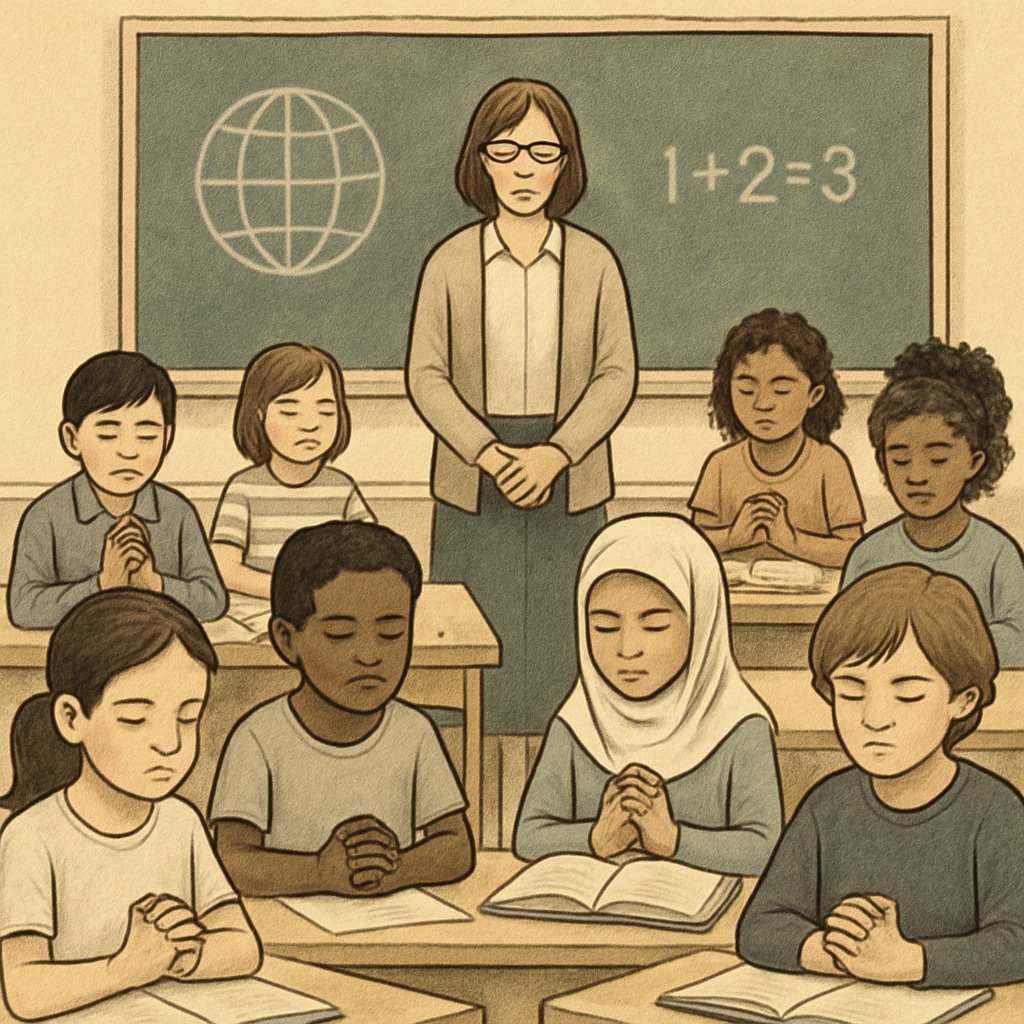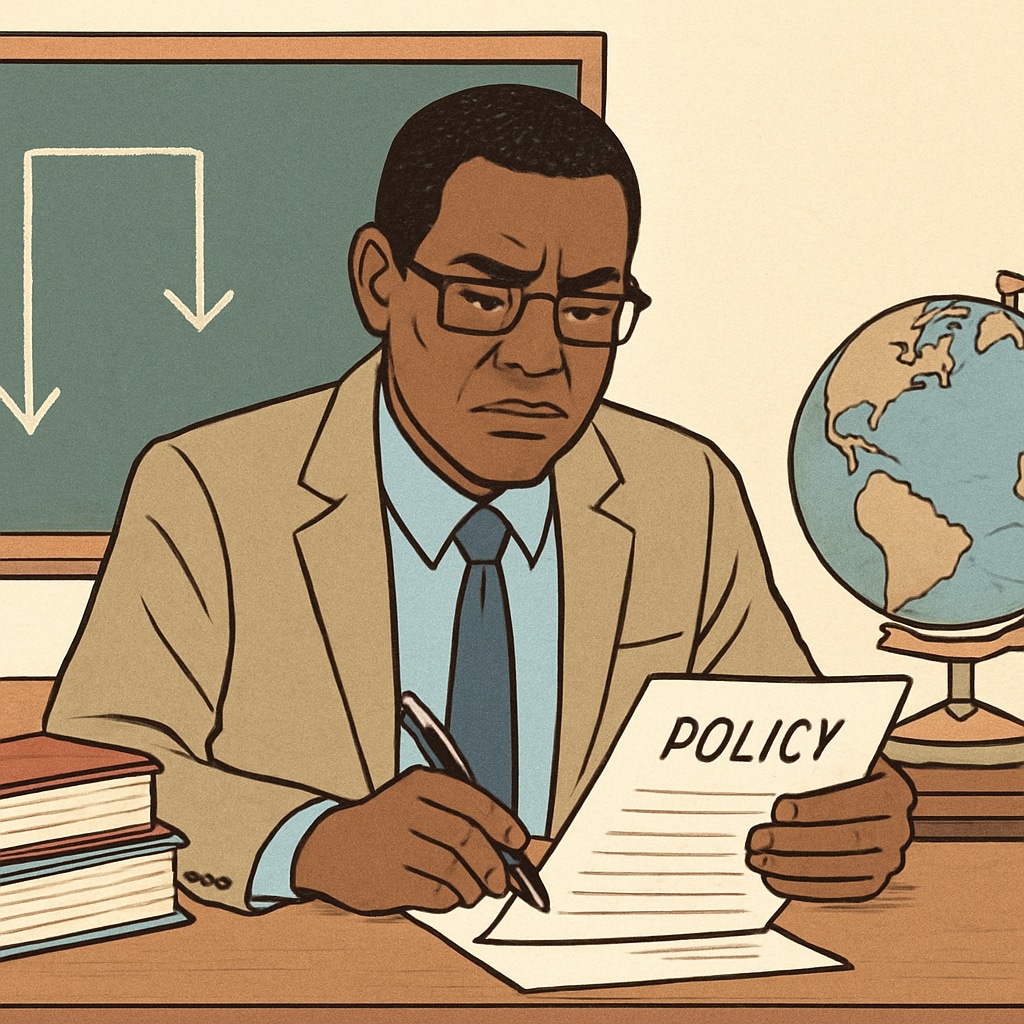The recent decision by some K12 schools to shift from a Gaza-specific mourning activity to a generalized commemoration for “global war victims” has ignited debates around educational practices. This approach, seen as an effort to avoid controversy, raises questions about its impact on political awareness, the role of schools during crises, and the balance between neutrality and honesty in education. The debate over this “generalization” highlights the intrinsic tension in educational settings between fostering critical thinking and maintaining political impartiality.
The Educational Dilemma: Balancing Sensitivity and Specificity
Schools often face the challenge of addressing politically charged events in a way that maintains inclusivity and avoids alienating any segment of their community. In the case of Gaza, where the conflict has deep historical and geopolitical roots, the idea of holding a moment of silence for its victims was seen by many as an important act of solidarity. However, for others, it risked being perceived as taking a political stance, potentially sparking divisive reactions within diverse school populations.
As a result, the decision to generalize the commemoration into a broader “global war victims” framework may seem like a safe middle ground. Yet, this approach dilutes the specific context of the Gaza situation, arguably diminishing the opportunity for students to engage with the complexity of the event. By opting for generalization, schools may inadvertently hinder students’ ability to critically analyze specific conflicts and their broader implications.

Avoiding Controversy: The Fear of Polarization
One of the driving forces behind the shift to a generalized commemoration is the fear of polarization. Schools are microcosms of larger societies, often reflecting the cultural and political divides present in the broader community. Administrators may worry that addressing a specific conflict—such as Gaza—could lead to complaints or backlash from parents and stakeholders with differing political views.
This fear is not unfounded. In recent years, educational institutions have faced increasing scrutiny over the perceived politicization of curricula and activities. As a result, the strategy of avoiding controversy through generalized language has become more common. However, critics argue that this approach comes at a cost. By steering clear of specifics, schools may miss opportunities to educate students on the importance of understanding global conflicts in their full historical and cultural contexts.

The Impact on Student Political Awareness
One of the most significant concerns about the generalization of mourning activities is its potential impact on students’ political awareness. Specific events, such as the Gaza conflict, serve as entry points for deeper discussions about history, geopolitics, and the human consequences of war. By shifting to a broader framework, schools may inadvertently deprive students of the chance to engage with these topics in a meaningful way.
Moreover, the decision to generalize may send a subtle message that political neutrality is more important than confronting difficult truths. While neutrality is a valuable principle, its application in this context can be problematic. Critics argue that it risks fostering a culture of disengagement, where students are encouraged to avoid challenging or controversial topics rather than grappling with them.
Moving Forward: Courage and Honesty in Crisis Education
To address these challenges, educators and administrators must find ways to navigate the fine line between neutrality and engagement. This requires courage and honesty. Rather than avoiding specific conflicts, schools can use them as teaching moments to explore broader themes such as human rights, international law, and the ethics of war.
One potential solution is to provide balanced, fact-based educational materials that present multiple perspectives on a given issue. For example, discussions about Gaza could include historical context, the perspectives of different stakeholders, and the humanitarian impact of the conflict. By equipping students with the tools to think critically and form their own opinions, schools can fulfill their role as incubators of informed citizenship.
Furthermore, schools can involve parents and the broader community in these discussions. Hosting forums, workshops, or panels that address the complexities of global conflicts can help create a shared understanding and reduce the fear of backlash. By fostering open dialogue, schools can build trust and demonstrate their commitment to educating students in a thoughtful and inclusive manner.
In conclusion, the decision to generalize mourning activities from specific events like Gaza to a broader “global war victims” framework is a complex and contentious one. While it may stem from a desire to avoid controversy, this approach raises important questions about the role of education in fostering political awareness and critical thinking. By embracing courage and honesty in crisis education, schools can navigate these challenges and empower students to engage with the world in a meaningful way.


